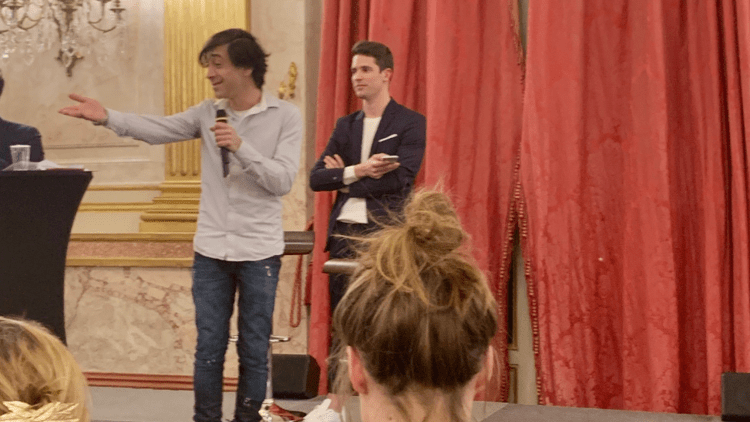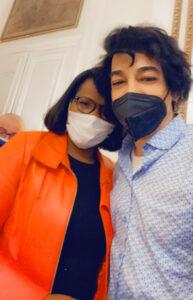Stop Homophobie founder tells of his 30 years of LGBT activism in the French-speaking world
Moïse Manoël-Florisse, is an African-Caribbean online journalist keeping an eye…
Terrence Katchadourian has fought against LGBTphobia and serophobia in Africa and Europe for almost 30 years. In 2012, he founded the organization Stop Homophobie to support and advocate for victims of anti-LGBT hate, particularly in the French-speaking world. In this interview, 76crimes retraces the path of his international francophone activism, revealing surprising confidences and intimacy.


76crimes: Tell us about your background and where you come from?
Terrence Katchadourian: I was born in Abidjan, Ivory Coast, into a family of Armenian origin. I also have distant local Métis origins, from the first urban communities on the coast. Of course, I am gay. During my childhood, European culture was the one I saw on TV and indeed my childhood was rocked by dreams of illustrious cities, such as Paris or New York. At that time, I had absolutely no knowledge of homophobia in the Ivory Coast, in the 80s, within the Lebanese community that I was living with.
My first militant actions were around the cause of AIDS, while I was studying communication in Paris. In fact, I joined Act Up and then Aides in 1994 and I was as much
revolted by the situation of people living with HIV as I was fascinated by the communication campaigns aimed at public opinion. Afterwards, I returned to the anonymity of a classic professional life in television, where I worked in production.
It was only in 1998, while watching a documentary from the Ivory Coast about a transgender woman named Barbara, that I heard the term “homophobia” for the first time. Prior to that, the term was not widely used. I think this documentary is called Woubi Chéri and Barbara is an Ivorian transgender woman who is still alive and living in France, I believe.

76crimes: So how did you come to want to fight against LGBTphobias?
Terrence Katchadourian: First, there was a suicide in my entourage that for me sounded the alarm. Then there is the place of social networks that did not exist in the 80s, with the broadcast of a viral video of a gay couple massacred in Nigeria, which deeply disturbed me. Finally, the virulent political debates around marriage for all, in 2012, in France, made me realize that there was definitely a problem, although in my family circle, I was not exposed to homophobia.
During this period I kept a blog where I wrote articles about homophobia in Africa, while in France I founded Humanophobie. During the year 2011/2012, my friends and I received nearly 30,000 requests for help from victims or LGBTI people facing difficulties, both in France and in French-speaking African countries.
As homophobia reached its peak in public discourse in France, in 2012, we registered Stop Homophobie and launched a hotline. Later on, our organization added a legal department, with the arrival of Etienne Deshoulières. Over the years, we have gone from being a support association for victims to an association of victims, as the latter become involved with us. For my part, after 10 years of existence, I am proud of the work accomplished by Stop Homophobie, of which I am the secretary-general.

We have launched proceedings against Ramzan Kadyrov, the strongman of Chechnya, and against Vladimir Putin, the Russian president, at the International Criminal Court of Justice in The Hague, because of the “homocidal” character of the LGBTphobic repression set up in Chechnya (internment camps, torture, murders, incitement to denounce LGBTI people, repressive targeting).
Beyond the Russian Federation, the international situation is still far too worrying to be able to say, like Gianni Infantino (president of FIFA), that the organization of the soccer World Cup in Qatar will be able to transform consciences.
76crimes: What are you doing for your native country, Ivory Coast?
Terrence Katchadourian: I returned to Abidjan in 2021 after COVID and was able to meet with local activists who already had their advocacy as well as their modes of action. In this context, collaboration is more about technical support, including materials.
People wishing to support Stop Homophobie’s actions can write to contact@stophomophobia.com.




Regional human rights body accepts challenge to Jamaican ban on marriage equality